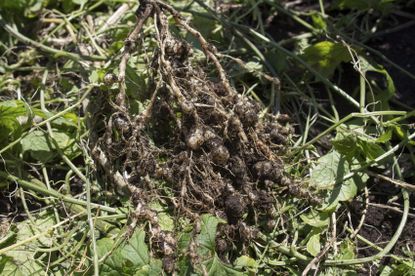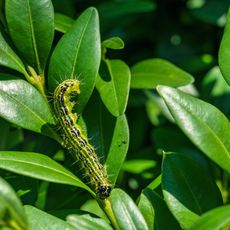Nematicide Information: Using Nematicides In Gardens


What are nematicides, and what do you need to know about using nematicides in gardens? In simple terms, nematicides are chemicals used to kill nematodes – tiny, parasitic worms that live in water or soil. Although the threadlike critters are microscopic, they can cause major damage when they feed on plant tissue or roots. Looking for more nematicide information? Read on.
Nematicide Information
Using nematicides in gardens, gardeners have access to two common nematicide products. There are numerous formulations within each type.
- Fumigant nematicides are dispersed rapidly as a gas through the spaces in the soil, thus killing the nematodes living within those spaces. Fumigant nematicides are most effective in moist but well-drained soil with relatively low levels of organic material.
- Non-fumigant (non-volatile) nematicides are sold as liquids or granules that are applied to the soil surface or mixed into the top of the soil. The active ingredient is released by irrigation or rainfall, and the effectiveness of the chemicals varies depending on a number of factors, including available moisture, soil structure, soil temperature, and organic material content.
How to Use Nematicides
Most products are approved only for commercial applications, as nematicides are highly toxic and should be used only by trained applicators who understand how to mitigate the risks. The chemicals should never be applied when vegetable crops are nearing harvest. Several newer, safer nematicides are currently under study, including biological products based on a fungus that destroys nematode eggs. However, the effectiveness of the products has yet to be proven. University of Florida IFAS Extension notes that the addition of manure, compost, or another organic material is one nontoxic way to reduce the damage caused by nematodes. By improving soil structure and water retention, organic material creates a healthy environment that increases the chances of plant survival even when nematodes are present. Deep, infrequent watering helps create healthy, nematode-resistant roots. Avoid high-nitrogen fertilizers, which produce lush growth and nematode-prone roots. Growing plants in above-ground containers can also reduce damage caused by nematodes. Use only clean potting mix that hasn’t been contaminated by regular garden soil.
Gardening tips, videos, info and more delivered right to your inbox!
Sign up for the Gardening Know How newsletter today and receive a free download of our most popular eBook "How to Grow Delicious Tomatoes."

A Credentialed Garden Writer, Mary H. Dyer was with Gardening Know How in the very beginning, publishing articles as early as 2007.
-
 Urban Composting Guide: How To Compost In The Middle Of The City
Urban Composting Guide: How To Compost In The Middle Of The CityUrban composting does not have to be daunting. You can compost in the city, and maybe even try some urban worm composting!
By Mary Ellen Ellis
-
 Shrub Diseases And Pests To Watch Out For
Shrub Diseases And Pests To Watch Out ForShrub diseases and pests can be challenging. Learn how to recognize and eradicate them before they can present a danger to your plants.
By Susan Albert